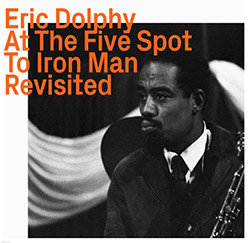
Restoring two essential albums from alto saxophonist Eric Dolphy: first his '61 live album at NYC's Five Spot in a quintet with Booker Little, Mal Waldron, Richard Davis & Ed Blackwell; then his '63 studio sessions in varying configurations with Clifford Jordan, Woody Shaw, Sonny Simmons, Prince Lasha, Bobby Hutcherson, Eddie Kahn Richard Davis, Garvin Bushell & J.C. Moses.
In Stock
Quantity in Basket: None
Log In to use our Wish List
Shipping Weight: 3.00 units
EU & UK Customers:
Discogs.com can handle your VAT payments
So please order through Discogs
Sample The Album:
Eric Dolphy-alto saxophone, bass clarinet, flute
Booker Little-trumpet
Mal Waldron-piano
Richard Davis-double bass
Ed Blackwell-drums
William Prince Lasha-flute
Huey Sonny Simmons-alto saxophone
Clifford Jordan-tenor saxophone
Woody Shaw-trumpet
Garvin Bushell-bassoon
Bobby Hutcherson-vibraphone
Eddie Kahn-double bass
J..C. Moses-drums
Click an artist name above to see in-stock items for that artist.
UPC: 752156116226
Label: ezz-thetics by Hat Hut Records Ltd
Catalog ID: ezz-thetics 1162
Squidco Product Code: 34196
Format: CD
Condition: New
Released: 2023
Country: Switzerland
Packaging: Cardboard Gatefold
Tracks 1-3 recorded live at The Five Spot, on July 16th, 1961.
Tracks 4-7 recorded in NYC, on July 3rd, 1963.
At The Five Spot Volume 1 originally released in 1961 as a vinyl LP on the Prestige label with catalog code NJ8260. Iron Man originally released in 1968 as a vinyl LP on the Douglas label with catalog code SD 785.
"Eric Dolphy and Booker Little are permanently bonded in jazz history, even though they collaborated for less than a year before the trumpeter tragically died at 23 in October 1961. Four studio sessions form the bulk of this work: Dolphy's Far Cry; Little's Out Front; Abbey Lincoln's Straight Ahead; and Max Roach's Percussion Bitter Sweet. However, the legendary status of the partnership was minted by recordings from a two-week stand at The Five Spot three months before Little's death. Fortuitously, Prestige producer Esmond Edwards brought Rudy Van Gelder in to record, yielding two LPs of material issued under Dolphy's name before the multi-instrumentalist's death, and a 1965 memorial album dedicated to both artists.
Jack Cooke's influential 1966 Jazz Monthly article about Dolphy rightly situated his quintet with Little, Mal Waldron, Richard Davis, and Edward Blackwell as "an almost archetypal transitional group, growing out of one era and looking to the next." A few revisionist commentators over the years have pointed to a set list foregrounding compositions by Dolphy, Little, and Waldron, and the quintet's palpably inspired interplay - which overcame a piano in woeful condition - to suggest that this stellar unit was essentially a cooperative, an assertion Davis vigorously debunked: this was Dolphy's band.
Dolphy's quintet was like the 1960 edition of Art Blakey's Jazz Messengers in that the repertoire of both groups benefited from having three members contribute distinctive works representing a wide swath of then-emergent extensions of hard bop. Just as the compositions of Wayne Shorter, Lee Morgan, and Bobby Timmons, gave albums like The Witch Doctor and Roots and Herbs contemporary relevance and lasting resonance, Dolphy, Little, and Waldron, triangulated their complementary compositional voices to create enduring music that is, at turns, earthy, elegant, and assertive.
Dolphy was already well familiar with Waldron's "Fire Waltz" from the session three weeks before for the pianist's The Quest. Where most contemporary jazz waltzes had a carefree loftiness, Waldron's patented jabbing attack grounded the composition and gave it grit. Little's "Bee Vamp" is exemplary of his ability to make unusually constructed materials take flight; in this case, using an ABACABA form measured 8-4-8-8-8-4-8. Even more so than on the subsequent "Hat and Beard," Monk's influence is in evidence on Dolphy's "The Prophet" (the nickname of Richard Jennings, whose surreal paintings graced the covers of Outward Bound and Out There). Dolphy's composition has a distinct emotional core; whereas Monk often projects a sentimental glow, Dolphy burns.
For Cooke, the Five Spot recordings marked the end of Dolphy's early period; his late 1961 recordings and European tours with John Coltrane, and his performances throughout Scandinavia with local rhythm sections, began an interim prolonged by what Cooke characterized as a heavy cut-back in recording activity by US labels in 1962. Dolphy's freelance work upon his return to New York often consisted of sessions as a non-soloing sideman, while gigs leading his own groups were sporadic, requiring frequent personnel changes.
This paucity of activity continued until mid-1963 when Dolphy was engaged by producer Alan Douglas, initiating Dolphy's late period of recordings. Douglas was then working for the short-lived FM label after several highly successful years as jazz department head for United Artists' imprint, where he produced several enduring albums, including Money Jungle, the historic meeting of Duke Ellington, Charles Mingus, and Roach. The July 1 session was devoted to Dolphy's duets with Richard Davis, while the July 3 session focused on ensemble performances, and Dolphy's solo version of "Love Me." The sessions yielded two LPs; while FM issued Conversations prior to Dolphy's death, Iron Man was not released until 1968 on Douglas International. Both albums included takes from both sessions.
The three ensemble pieces penned by Dolphy still used the hard-charging serpentine lines and abrupt pivots that distinguished his earlier work, but there was an increased urgency in their delivery, particularly on "Burning Spear." In annotating Dolphy's Prestige recordings, Bill Kirchner applied an observation about Anthony Ortega by John William Hardy to Dolphy. Hardy identified Ortega's penchant for "sudden explosive divergence into emotionally asymmetrical phrases only freely related to the structural format of the songs played." Kirchner thought this was also true of Dolphy, but "in a more radical way." Arguably, this trait reached a zenith with "Burning Spear." The piece was titled "Half Note Triplets" when Dolphy debuted it at Carnagie Hall in April. He renamed it when Jomo Kenyatta became Kenya's first post-colonial prime minister weeks later - "Burning Spear" was Kenyatta's nom de guerre.
"Iron Man," "Mandrake," and his breezy take on Fats Waller's "Jitterbug Waltz," reinforced what was already known about Dolphy; that he earnestly pushed the envelope, and that he occasionally delighted in refreshing a standard. "Burning Spear" added to the picture. The scored material for nonet jarringly juxtaposed drama and discontinuity, the former perhaps gleaned from his work with Mingus, the latter possibly resulting from his encounters with contemporary chamber works like Edgard Varèse's "Density 21.5." However, the salient quality of the performance is a fierceness reflective of the gathering social and political forces that increasingly propelled the music, which Dolphy undoubtedly felt through his work with Roach.
Although only a year separates the club date and the studio sessions, the emergent energies Cooke identified when he lauded Dolphy's quintessential quintet as an almost archetypal transitional group had set off an ongoing chain reaction of ideas that Dolphy had scant opportunities to realize. Despite the promise of gaining wider recognition, and therefore the opportunity to regularly document his work - as was the case during his tenure with Prestige - recording for Blue Note did not deter his plan to remain in Europe for an extended period after the historic April 1964 tour with Mingus, Had Dolphy lived, this could have amounted to another interim; given how fast the scene was changing, he may have struggled to regain traction in the US, despite the release of Out to Lunch.

The Squid's Ear!
Artist Biographies
• Show Bio for Eric Dolphy "Eric Allan Dolphy Jr. (June 20, 1928 - June 29, 1964) was an American jazz alto saxophonist, bass clarinetist and flautist. On a few occasions, he also played the clarinet and piccolo. Dolphy was one of several multi-instrumentalists to gain prominence in the same era. His use of the bass clarinet helped to establish the instrument within jazz. Dolphy extended the vocabulary and boundaries of the alto saxophone, and was among the earliest significant jazz flute soloists. His improvisational style was characterized by the use of wide intervals, in addition to employing an array of extended techniques to emulate the sounds of human voices and animals. He used melodic lines that were "angular, zigzagging from interval to interval, taking hairpin turns at unexpected junctures, making dramatic leaps from the lower to the upper register." Although Dolphy's work is sometimes classified as free jazz, his compositions and solos were often rooted in conventional (if highly abstracted) tonal bebop harmony." ^ Hide Bio for Eric Dolphy • Show Bio for Booker Little "Booker Little Jr. (April 2, 1938 Ð October 5, 1961) was an American jazz trumpeter and composer. He appeared on many recordings in his short career, both as a sideman and as a leader. Little performed with Max Roach, John Coltrane, and Eric Dolphy and was strongly influenced by Sonny Rollins and Clifford Brown. He died aged 23. Booker Little Jr. was born in Memphis, Tennessee to Booker, a Pullman porter who was a trombonist, and his wife Ophelia Little, who was a church organist. He also was the brother of Helena, Vivian, and Vera Little (Vera later sung with the London Opera Company). From such a musically inclined family, Little naturally gravitated towards music at a young age. His first instrument was trombone (like his father), but he switched to clarinet at the age of 12. At 14, his band director urged him to switch to trumpet, and he settled on the instrument quickly. In 1952, Little started attending Manassas High School where he continued his development on trumpet and later graduated. Being in Memphis, Little was able to further develop his talent with contemporaries such as Phineas Newborn Jr., George Coleman, Frank Strozier, and his cousin Louis Smith. He was performing with Newborn on a casual basis by his mid-teens. After graduating, he moved to Chicago, Illinois to continue his studies at the Chicago Conservatory in 1954. At the conservatory, he continued to study trumpet but also incorporated studies in composition, theory, and orchestration with a minor in piano. He would later on graduate with a bachelor's degree in his main instrument. As a sophomore, Little met Sonny Rollins. For about nine months, they both stayed at the YMCA where Rollins would influence Little greatly by encouraging him to find his own sound versus mimicking other musicians. While attending a recording session with Rollins, Little met drummer Max Roach in 1955. Following the death of Clifford Brown the next year, Little became Roach's trumpet player in his band Max Roach Four. Being in school interfered with the quality of his performance, and he was replaced by Kenny Dorham. Following graduation, Little rejoined Roach's band, reclaiming his spot from Dorham in 1958. In that band, he reunited with one of his friends from Memphis, George Coleman. As trumpeter, Little made his recording debut on Max Roach + 4 on the Chicago Scene in June. He was featured on pieces like "My Old Flame". Little recorded two more albums with the group, which Roach altered by replacing the piano with tuba player Ray Draper. On Max Roach + 4 at Newport, Little introduced his first composition, "Minor Mode", and on "A Night in Tunisia" he was the main soloist. On their album, Deeds, Not Words, in the opening piece, "You Stepped Out of a Dream", Little displayed his arranging skills, where the tenor sax, trumpet and tuba share similar voicings that created tension and sophisticated musicality within the unusual piano-less group. Little had a hand in the majority of the arranging on the Deeds, Not Words album. In October, the group appeared on ABC's Stars of Jazz television program. Also during October, Little recorded his first album as a leader, Booker Little 4 and Max Roach (also known as The Defiant Ones) with Roach on drums, Coleman on tenor, and Davis on bass (with Tommy Flanagan on piano). On The Defiant Ones, Little played three of his original pieces, "Rounders Mode", "Dungeons Waltz", and "Jewels Tempo". Following his first album as leader, Little and Max Roach + 4 recorded one more album before the end of 1958 titled Award-Winning Drummer under Roach's name and another titled Many Sides of Max Roach in 1959 (the second album was not released until 1964). Many Sides of Max Roach was the last album Booker Little recorded with Roach's group until 1960. During his leave, Little freelanced around New York developing new acquaintances with musicians such as John Coltrane, Slide Hampton, and Teddy Charles. He was present on two of the four tracks of a reunion album with his old friends Coleman, Strozier, Smith, Phineas Newborn Jr., Calvin Newborn, George Joyner, and Charles Crosby titled Down Home Reunion, credited as by Young Men From Memphis, where the group displayed their interests in blues music. Through the course of the end of 1959 and early 1960, Little featured and worked on albums such as Slide!, Bill Henderson Sings, and the last album he recorded before returning to Roach's group, Fantastic Frank Strozier. In addition, he also recorded his second album as a lead simply titled Booker Little for Bob Shad's Time label where he introduced his original compositions such as '"Opening Statement", "Minor Sweet", "Bee Tee's minor Plea", "Life's a Little Blue" and "The Grand Valse". In 1960, Little rejoined Roach's band and recorded 14 albums from April 1960 to September 1961. Following his return, Little took on a bigger role being music director and composing more music for the group. The first album Roach recorded with Little as trumpeter was We Insist! - Freedom Now Suite. Little continued to work with Roach but soon met Eric Dolphy. The combination of Little and Dolphy presented the possibility of the dawning of a new sound of music. At the beginning of their newfound association, Dolphy recorded Far Cry with Little on trumpet. In addition, Little also recorded his third album as lead Out Front. This album Out Front was a result of his work on We Insist! Following the recording of We Insist, Little was hired by Nat Hentoff to write for Candid Records. With Dolphy, he co-led a residency at the Five Spot club in New York in June 1961, from which three albums were eventually issued by the Prestige label titled Eric Dolphy at the Five Spot Volumes 1&2 and the Memorial Album. It was during this period that he began to show promise of expanding the expressive range of the "vernacular" bebop idiom which originated with Clifford Brown, his most immediate influence as a performer. Booker Little recorded his final album with Roach in August 1961 titled Percussion Bitter Sweet with Dolphy on sax and recorded his last and final album as leader entitled Booker Little and Friend (also known as Victory and Sorrow). After years of physical pain, Little died of complications resulting from uremia on October 5, 1961, in New York City at the age 23. He was survived by his wife, two sons Booker T. III and Larry Cornelius, and two daughters Cornelia and Ana Dorsey." ^ Hide Bio for Booker Little • Show Bio for Mal Waldron "Malcolm Earl "Mal" Waldron (August 16, 1925 - December 2, 2002) was an American jazz pianist, composer, and arranger. He started playing professionally in New York in 1950, after graduating from university. In the following dozen years or so Waldron led his own bands and played for those led by Charles Mingus, Jackie McLean, John Coltrane, and Eric Dolphy, among others. During Waldron's period as house pianist for Prestige Records in the late 1950s, he appeared on dozens of albums and composed for many of them, including writing his most famous song, "Soul Eyes", for Coltrane. Waldron was often an accompanist for vocalists, and was Billie Holiday's regular accompanist from April 1957 until her death in July 1959. A breakdown caused by a drug overdose in 1963 left Waldron unable to play or remember any music; he regained his skills gradually, while redeveloping his speed of thought. He left the U.S. permanently in the mid-1960s, settled in Europe, and continued touring internationally until his death. In his 50-year career, Waldron recorded more than 100 albums under his own name and more than 70 for other band leaders. He also wrote for modern ballet, and composed the scores of several feature films. As a pianist, Waldron's roots lay chiefly in the hard bop and post-bop genres of the New York club scene of the 1950s, but with time he gravitated more towards free jazz. He is known for his dissonant chord voicings and distinctive later playing style, which featured repetition of notes and motifs." ^ Hide Bio for Mal Waldron • Show Bio for Richard Davis "Richard Davis is an international performing musician and Professor of Bass (European Classicaland Jazz), Jazz History and combo improvisation at the University of Wisconsin-Madison. Chicagoborn, he came to the UW-Madison in 1977 after spending 23 years in New York City establishinghimself as one of the world's premier bass players. Downbeat International Critics Poll named himBest Bassist from 1967-74. He has recorded a dozen albums as a leader and 3000 recordings andjingles as a sideman. His performance/recording credits include Sarah Vaughan, Eric Dolphy, DonSebesky, Oliver Nelson, Bruce Springsteen, Van Morrison, Frank Sinatra, Barbra Streisand, MilesDavis, Thad Jones/Mel Lewis Band, Dexter Gordon, Ahmad Jamal and a host of other notables.Mr. Davis is equally at home in the world of euro classical music, having played under the batons ofGeorge Szell, Leopold Stokowski, Igor Stravinsky, Pierre Boulez, Gunther Schuller, and LeonardBernstein. His great versatility as a bassist keeps him in constant demand for worldwide concertappearances. For nearly fifty years he has drawn enthusiastic audiences in Japan, Europe, Russia,South America, Puerto Rico, Cuba, The West Indies, Hong Kong , Israel and United States. His mostrecent CD release (May 2000) , The Bassists: Homage to Diversity (King Records) was recorded inJapan. This CD was inspired by experiences related to diversity dialogue. His second CD with King records So In Love was assembled with the idea of embracing the oneness of humankind. In 1993, he founded the Richard Davis Foundation for Young Bassists, Inc. which annually brings in 17 masterful bass instructors/performers to teach young bassists ages 3-18.In 1998 he created the Retention Action Project (R.A.P.) focused on open dialogues in subjects that educate all of us to multicultural differences. R.A.P. collaborated with Vice Chancellor Paul W. Barrows (student affairs) and Seema Kapani, Diversity Education Coordinator/Trainer (Equity and Diversity Resourse Center).He has been instrumental in bringing to the UW campus renowned speakers and social change activists such as Peggy McIntosh, Jane Elliott, Francie Kendall, Nathan Rutstein, Victor Lewis, Hugh Vasquez (Color of Fear, Stir Fry Productions,1994) and Allan G. Johnson (Gender Knot). Prof. Davis is devoted to equity issues and shares freely his wisdom, home, and resources with one and all to help create an environment where all can experience dignity and peace. He has also initiated a chapter in Madison of the "Institutes for the Healing of Racism, Inc." Prof. Davis has received honorary doctorate degrees in Musical Arts and Humane Letters, and the Hilldale Award for distinguished teaching from former Chancellor Donna Shalala, and a honorary doctorate of Humane Letters from Edgewood College, Madison, in 1998. In 2000 he received the Manfred E. Swarsensky Humanitarian Award from the Rotary Club Of Madison. In 2001 he received the Governor's of Wisconsin Arts Award. The Reverend Dr. Martin Luther King, Jr. Humanitarian Award, bestowed annually by the City of Madison, was presented to Dr. Richard Davis by Mayor Susan J.M. Bauman during the 18th Annual City-County Observance of Dr. King's birth at the Madison Civic Center, on Monday, January, 2003. (Interview) In 2008, Richard Davis received the MAMA (Madison Area Music Award Michael St. John Lifetime Achievement Award, Human Rights Award (Rev.James C. Wright), "FIGS" 2008 First Interest Group Students (Freshman Year), the TRIO award/first in family to go to College/Awarded by Caroline McCormack. In 2009 he received the Exceptional Service Award University of Wisconsin-Madison 2009 (Gary Sandefur, Dean), and the Spencer Tracy Award for Distinction in the Performing Arts (Wisconsin Historical Society)." ^ Hide Bio for Richard Davis • Show Bio for Ed Blackwell "Edward Joseph Blackwell (October 10, 1929 - October 7, 1992) was an American jazz drummer born in New Orleans, Louisiana, known for his extensive, influential work with Ornette Coleman. Blackwell's early career began in New Orleans in the 1950s. He played in a bebop quintet that included pianist Ellis Marsalis and clarinetist Alvin Batiste. There was also a brief stint touring with Ray Charles. The second line parade music of New Orleans greatly influenced Blackwell's drumming style and could be heard in his playing throughout his career. Blackwell first came to national attention as the drummer with Ornette Coleman's quartet around 1960, when he took over for Billy Higgins in the quartet's stand at the Five Spot in New York City. He is known as one of the great innovators of the free jazz of the 1960s, fusing New Orleans and African rhythms with bebop. In the 1970s and 1980s Blackwell toured and recorded extensively with fellow Ornette Quartet veterans Don Cherry, Charlie Haden, and Dewey Redman in the quartet Old and New Dreams. In the late 1970s Blackwell became an Artist-in-Residence at Wesleyan University in Middletown, Connecticut. Blackwell was a beloved figure on the Wesleyan Campus until he died. In 1981, he performed at the Woodstock Jazz Festival, held in celebration of the tenth anniversary of the Creative Music Studio. "The Ed Blackwell Project" members were Mark Helias, bass, Carlos Ward, alto sax/flute, and Graham Haynes (son of drummer Roy Haynes), cornet. After years of kidney problems, Blackwell died in 1992. The following year he was inducted into the Down Beat Jazz Hall of Fame." ^ Hide Bio for Ed Blackwell • Show Bio for Bobby Hutcherson "Bobby Hutcherson was born January 27, 1941, in Los Angeles. He studied piano with his aunt as a child, but didn't enjoy the formality of the training; still, he tinkered with it on his own, especially since his family was already connected to jazz: his brother was a high school friend of Dexter Gordon and his sister was a singer who later dated Eric Dolphy. Everything clicked for Hutcherson during his teen years when he heard a Milt Jackson record; he worked until he saved up enough money to buy his own set of vibes. He began studying with Dave Pike and playing local dances in a group led by his friend, bassist Herbie Lewis. After high school, Hutcherson parlayed his growing local reputation into gigs with Curtis Amy and Charles Lloyd and in 1960, he joined an ensemble co-led by Al Grey and Billy Mitchell. In 1961, the group was booked at New York's legendary Birdland club and Hutcherson wound up staying on the East Coast after word about his inventive four-mallet playing started to spread. Hutcherson was invited to jam with some of the best up-and-coming musicians in New York: hard boppers like Grant Green, Hank Mobley, and Herbie Hancock, but most importantly, forward-thinking experimentalists like Jackie McLean, Grachan Moncur III, Archie Shepp, Andrew Hill, and Eric Dolphy. Through those contacts, Hutcherson became an in-demand sideman at recording sessions, chiefly for Blue Note. Hutcherson had a coming-out party of sorts on McLean's seminal "new thing" classic One Step Beyond (1963), providing an unorthodox harmonic foundation in the piano-less quintet. His subsequent work with Dolphy was even more groundbreaking and his free-ringing, open chords and harmonically advanced solos were an important part of Dolphy's 1964 masterwork Out to Lunch. That year, he won the DownBeat readers' poll as Most Deserving of Wider Recognition on his instrument. Hutcherson's first shot as a leader came with 1965's Dialogue, a classic of modernist post-bop with a sextet featuring some of the hottest young talent on the scene - most notably Freddie Hubbard, Sam Rivers, and Andrew Hill, although drummer Joe Chambers would go on to become a fixture on Hutcherson's '60s records (and often contributed some of the freest pieces he recorded). A series of generally excellent sessions followed over the next few years, highlighted by 1965's classic Components (which showcased both the free and straight-ahead sides of Hutcherson's playing) and 1966's Stick-Up! In 1967, he returned to Los Angeles and started a quintet co-led by tenor saxophonist Harold Land, which made its recording debut the following year on Total Eclipse. Several more sessions followed (Spiral, Medina, Now) that positioned the quintet about halfway in between free bop and mainstream hard bop - advanced territory, but not entirely fashionable at the time. Thus, the group didn't really receive its due and dissolved in 1971. By that point, Hutcherson was beginning a brief flirtation with mainstream fusion, which produced 1970s funky but still sophisticated San Francisco (named after his new base of operations). By 1973, however, he'd abandoned that direction, returning to modal bop and forming a new quintet with trumpeter Woody Shaw that played at that summer's Montreux Jazz Festival (documented on Live at Montreux). In 1974, he re-teamed with Land and over the next few years, he continued to record cerebral bop dates for Blue Note despite being out of step with the label's more commercial direction. He finally departed in 1977 and signed with Columbia, where he recorded three albums from 1978-1979 (highlighted by Un Poco Loco). Adding the marimba to his repertoire, Hutcherson remained active throughout the '80s as both a sideman and leader, recording most often for Landmark in a modern-mainstream bop mode. He spent much of the '90s touring rather than leading sessions; in 1993, he teamed with McCoy Tyner for the duet album Manhattan Moods. Toward the end of the decade, Hutcherson signed on with Verve, for whom he debuted in 1999 with the well-received Skyline. In 2004, Hutcherson joined the San Francisco Jazz Collective, touring with the ensemble for several years. In 2007, he released the album For Sentimental Reasons, which featured pianist Renee Rosnes. Two years later, Hutcherson returned with the John Coltrane-inspired Wise One. The concert album, Somewhere in the Night, recorded at Dizzy's Club Coca-Cola at Lincoln Center, appeared in 2012. In 2014, Hutcherson joined organist Joey DeFrancesco and saxophonist David Sanborn for the Blue Note session Enjoy the View."-Steve Huey ^ Hide Bio for Bobby Hutcherson
7/9/2025
Have a better biography or biography source? Please Contact Us so that we can update this biography.
7/9/2025
Have a better biography or biography source? Please Contact Us so that we can update this biography.
7/9/2025
Have a better biography or biography source? Please Contact Us so that we can update this biography.
7/9/2025
Have a better biography or biography source? Please Contact Us so that we can update this biography.
7/9/2025
Have a better biography or biography source? Please Contact Us so that we can update this biography.
7/9/2025
Have a better biography or biography source? Please Contact Us so that we can update this biography.
Track Listing:
1. Fire Waltz 13:07
2. Bee Vamp 12:08
3. The Prophet 21:00
4. Iron Man 9:13
5. Burning Spear 12:01
6. Mandrake 4:48
7. Jitterbug Waltz 7:20
Hat Art
Improvised Music
Jazz
Free Improvisation
NY Downtown & Metropolitan Jazz/Improv
Quintet Recordings
Jazz Reissues
Staff Picks & Recommended Items
Search for other titles on the label:
ezz-thetics by Hat Hut Records Ltd.

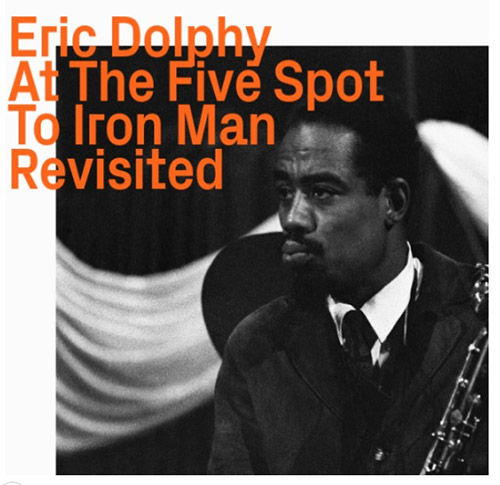

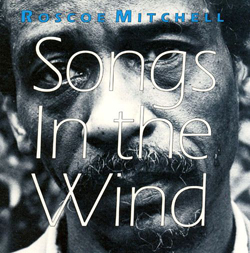
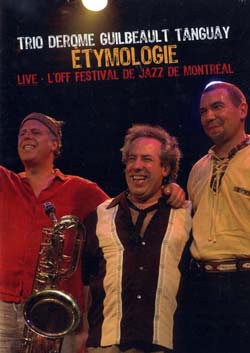

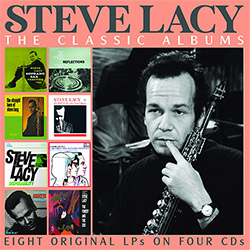







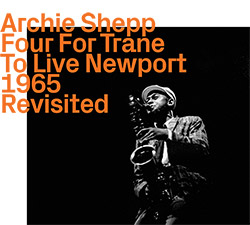
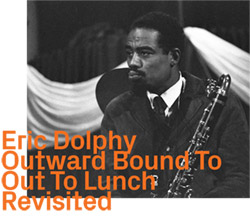
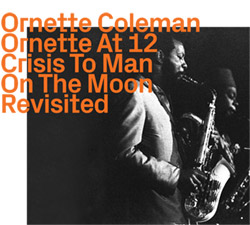

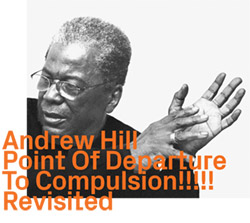
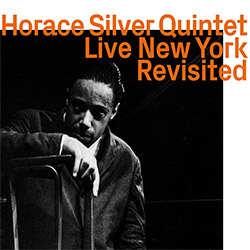


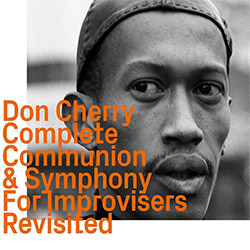
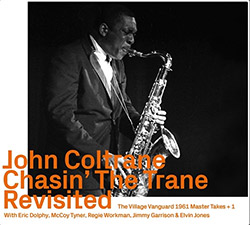
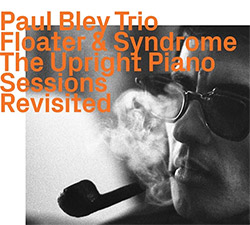







![BlueRing Improvisers: Materia [2 CDs]](https://www.teuthida.com/productImages/misc4/36513.jpg)








![Wheelhouse (Rempis / Adasiewicz / McBride): House And Home [VINYL]](https://www.teuthida.com/productImages/misc4/36462.jpg)
![+DOG+: The Light Of Our Lives [2 CDs]](https://www.teuthida.com/productImages/misc4/36009.jpg)


![Parker, Evan / Jean-Marc Foussat: Insolence [VINYL]](https://www.teuthida.com/productImages/misc4/36398.jpg)










![Deupree, Jerome / Sylvie Courvoisier / Lester St. Louis / Joe Morris: Canyon [2 CDs]](https://www.teuthida.com/productImages/misc4/36404.jpg)



![Eventless Plot | Haarvol: The Subliminal Paths [CASSETTE + DOWNLOAD]](https://www.teuthida.com/productImages/misc4/36232.jpg)










![Eventless Plot | Francesco Covarino: Methexis [CASSETTE + DOWNLOAD]](https://www.teuthida.com/productImages/misc4/36231.jpg)



![Das B (Mazen Kerbaj / Mike Majkowski / Magda Mayas / Tony Buck): Love [VINYL]](https://www.teuthida.com/productImages/misc4/36329.jpg)


![Eternities: Rides Again [CASSETTE]](https://www.teuthida.com/productImages/misc4/36247.jpg)
![Lopez, Francisco: Untitled (2021-2022) [2 CDs]](https://www.teuthida.com/productImages/misc4/36438.jpg)






![Money : Money 2 [2 CDs]](https://www.teuthida.com/productImages/misc4/35894.jpg)




![Klinga, Erik: Elusive Shimmer [VINYL]](https://www.teuthida.com/productImages/misc4/36258.jpg)
![CHANGES TO blind (Phil Zampino): Volume 9 - I Wave on a Fine Vile Mist [CD + DOWNLOAD]](https://www.teuthida.com/productImages/misc4/36061.jpg)

![Wallmart / Rubbish: Asset Protection [split CD]](https://www.teuthida.com/productImages/misc4/35900.jpg)


![+Dog+: The Family Music Book Vol. 5 [2 CDs]](https://www.teuthida.com/productImages/misc4/35897.jpg)
![Kuvveti, Deli : Kuslar Soyledi [CASSETTE w/ DOWNLOAD]](https://www.teuthida.com/productImages/misc4/36107.jpg)

![Brown, Dan / Dan Reynolds: Live At The Grange Hall [unauthorized][CASSETTE]](https://www.teuthida.com/productImages/misc4/36245.jpg)








![Palestine, Charlemagne / Seppe Gebruers: Beyondddddd The Notessssss [VINYL]](https://www.teuthida.com/productImages/misc4/36206.jpg)
![Palestine, Charlemagne / Seppe Gebruers: Beyondddddd The Notessssss [NEON GREEN VINYL]](https://www.teuthida.com/productImages/misc4/36207.jpg)

![Laubrock, Ingrid: Purposing The Air [2 CDs]](https://www.teuthida.com/productImages/misc4/35639.jpg)

![Yoko, Ono / The Great Learning Orchestra: Selected Recordings From Grapefruit [2 CDs]](https://www.teuthida.com/productImages/misc4/35841.jpg)









![Zorn, John / JACK Quartet: The Complete String Quartets [2 CDs]](https://www.teuthida.com/productImages/misc4/35609.jpg)

![Lonsdale, Eden: Dawnings [2 CDs]](https://www.teuthida.com/productImages/misc4/35480.jpg)



![Sorry For Laughing (G. Whitlow / M. Bates / Dave-Id / E. Ka-Spel): Rain Flowers [2 CDS]](https://www.teuthida.com/productImages/misc4/35985.jpg)

![Rolando, Tommaso / Andy Moor : Biscotti [CASSETTE w/ DOWNLOADS]](https://www.teuthida.com/productImages/misc4/36106.jpg)


![Electric Bird Noise / Derek Roddy: 8-10-22 [CD EP]](https://www.teuthida.com/productImages/misc4/35970.jpg)








![Elephant9 : Mythical River [VINYL]](https://www.teuthida.com/productImages/misc4/34624.jpg)



![Elephant9 with Terje Rypdal: Catching Fire [VINYL 2 LPs]](https://www.teuthida.com/productImages/misc4/35355.jpg)
![Deerlady (Obomsawin, Mali / Magdalena Abrego): Greatest Hits [VINYL]](https://www.teuthida.com/productImages/misc4/34876.jpg)







![Surplus 1980: Illusion of Consistency [CD]](https://www.teuthida.com/productImages/misc4/35069.jpg)
![Staiano, Moe: Away Towards the Light [VINYL + DOWNLOAD]](https://www.teuthida.com/productImages/misc4/35037.jpg)
![Coley, Byron: Dating Tips for Touring Bands [VINYL]](https://www.teuthida.com/productImages/misc4/17906.jpg)

![Lost Kisses: My Life is Sad & Funny [DVD]](https://www.teuthida.com/productImages/misc4/lostKissesDVD.jpg)